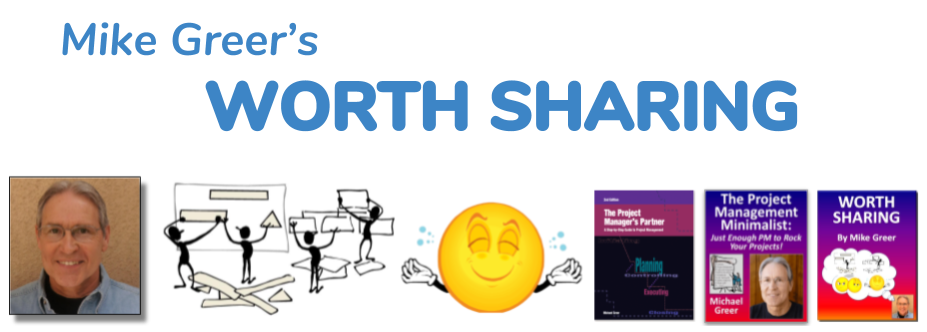Six Fact Checking Tools that Have Stood the Test of Time
Back in 2018 I wrote an article that included a strategy, links and a PDF reference tool to help you find factual, truthful information quickly. (See: The Truth Finder: 3 Questions & Lots of Links to Help You Distinguish Fact from Fiction.)
Now that we're back in another U.S. presidential campaigning season it seems like a good time to take another look at this article, some of the excellent resources it showcased and a couple of new ones that can help you separate fact from fiction.
I'm pleased to say that all the ones I originally shined a light on in that PDF are still going strong. They are:
Some Excellent New (to me...) Fact Checking Tools
In the 5 years since I wrote that article, I've learned of some powerful additions to this collection. They include:
- Washington Post Fact Checker - Primarily evaluates political stories.
- Tineye.com - Provides reverse image search to determine the authenticity of an image.
- RumorGuard: by the News Literacy Project - Presents examples of misinformation and some fact-checking.
- Google Fact Check Explorer - This is sort of a meta fact checker, with brief summaries of results from many fact checking sources, clearly documented and linked to help you with further research.
Bonus: Google Search has added a powerful new feature to help you quickly verify info that appears in your search results. According to Google:
"Now, wherever you’re searching, you’ll see three dots next to most results on Google Search. Tapping those three dots gives you a way to learn more about where the information you’re seeing is coming from and how our systems determined it would be useful for your query. With this context, you can make a more informed decision about the sites you may want to visit and what results will be most helpful for you." -- from Five new ways to verify info with Google Search.
My Original 3-Question Strategy for Digging Deeper and Finding the Truth
 |
| The Truth Finder PDF Worksheet |
My original 3 question Truth Finder strategy presented a systematic approach to the complex process of thoroughly checking facts. Here's how it worked:
Question 1: IS THIS SIMPLE STATEMENT TRUE?
Objective: An accurate depiction of reality.
This question is focused on finding whether an assertion is based on an observable, provable or historically accurate fact.
Examples:
- Did congress person Jones accept a bribe from industry lobbyist Smith?
- Is there a direct link between chewing tobacco and cancer of the mouth?
How to get the answer: Consult any of the fact-checking resources listed above.
Question 2: WHAT ARE SOME DIFFERENT PERSPECTIVES ON THIS COMPLEX ISSUE?
Objective: A deeper understanding of an issue.
Sometimes the "truth" is a matter of developing a deeper understanding of all the nuances and shades of grey surrounding an issue, then deciding what "truth" is for yourself.
Examples:
- Are e-cigarettes dangerous?
- Is presidential candidate X beholden to industry lobbyists?
- Does Obama Care reduce healthcare costs?
How to get the answer: Consult any of the fact-checking resources listed above.
(NOTE: The last of my three questions in your truth quest usually can't be answered so quickly or easily. However, if your question is focused on an important issue or a particularly controversial topic then this question is probably worth spending the extra effort to answer.)
Question 3: WHO'S THE AUTHOR (PUBLISHER) and WHAT'S THEIR AGENDA (TRACK RECORD)?
Objective: Consider the source! (i.e., Consider the message creator's unique viewpoint & their credibility.)
Unless you plan to do original research or conduct your own interviews of experts or witnesses, you're going to be forced to trust the websites, authors and media people whose work you are consuming. So you need to answer these broad questions:
- Does the content creator have a particular agenda they are working?
- Do they typically represent the same constituency or political perspective or group of advertisers?
And then dig deeper with these questions:
FOR WEBSITES, ASK:
- What does the "About" page or "Contributors" page say?
- Who supports the website? (Founders, contributors, distributors, parent company, etc.)
- Has the site won any awards or honors? If so, from whom?
- What do advertisers seem to think the site's visitors want? (i.e., What unique points of view or content do the advertisers seem to expect the website/author to provide?)
FOR INDIVIDUAL AUTHORS OR MEDIA PRODUCERS, LOOK FOR:
- Wikipedia biographies (Or general web search for "[name]: biography").
- Any awards or honors attained. If so, from whom?
- Reviews of the author's or producer's body of work.
- A history of biased, slanted or sensational publications.
- Membership in particular organizations.
The truth is out there! So take the time to find it.
Whether you need to check the accuracy of a simple assertion or pull back the curtain on something as complex as the "stolen" 2020 U.S. presidential election you have plenty of fact checking tools to help you distinguish reality from fiction. So if you want to help in the war against misinformation all you need to do is 1) select a suspected lie or distortion and then 2) get to work using the tools above to discover the truth and, finally, 3) publicize the truth you find by spreading the word on social media sites, interactions with friends & relatives, etc.
Learn how AI may be able to help.
Recent advances in artificial intelligence (AI) have led to a number of developments in the process of fact checking. To learn more about how AI may be able to help with your fact checking chores, check out these articles:

